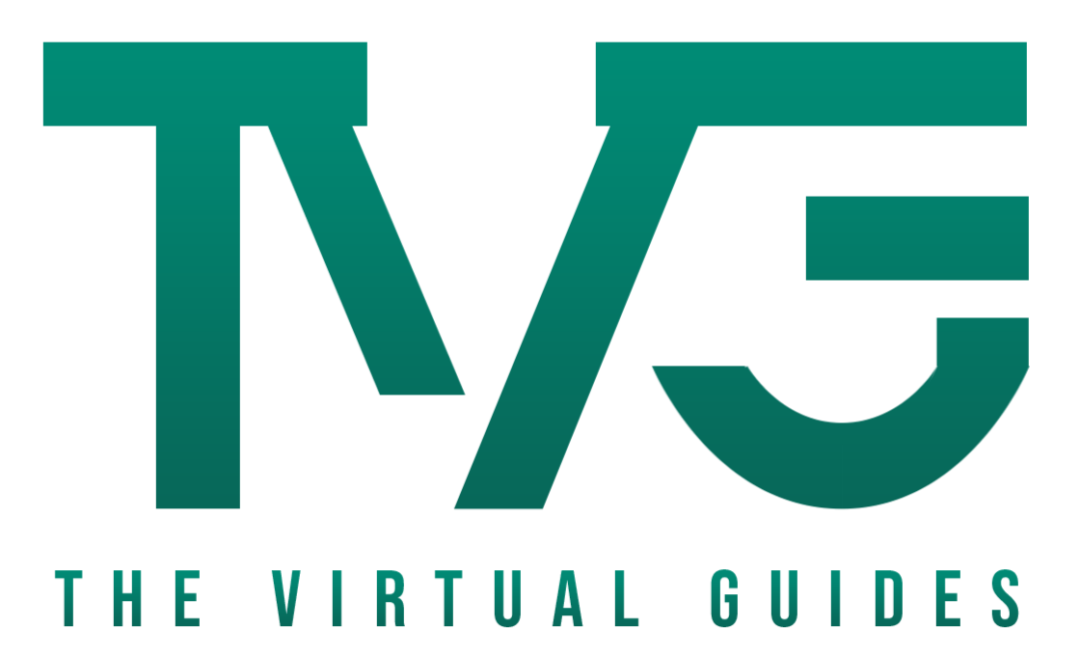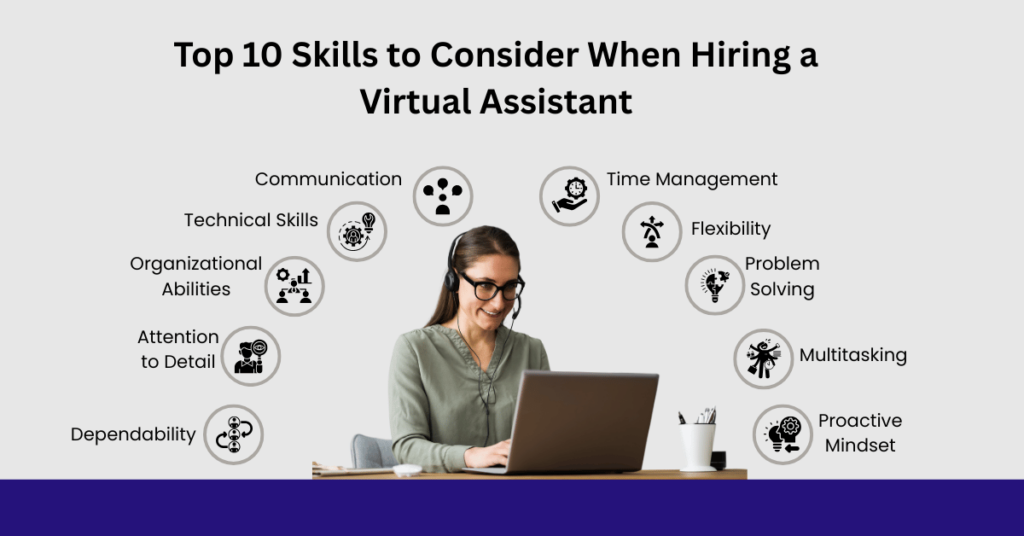The Top 10 Qualities to Seek in a Virtual Assistant Hiring a virtual assistant can help businesses enhance efficiency, remain organized, and simplify operations. Yet, choosing the right VA involves assessing essential skills that guarantee reliability and effectiveness. This article discusses the top 10 qualities employers should consider when selecting a VA, covering everything from communication and time management to tech skills and problem-solving. Recognizing these traits will assist you in finding a virtual assistant who aligns with your requirements and adds to your business’s success.
1. Communication
Clear communication is vital for a successful collaboration. A VA must express ideas effectively, reply quickly, and maintain a professional demeanor in emails, messages, and calls. Strong verbal and written communication reduces the chances of misunderstandings and ensures tasks remain on track.
- Express ideas clearly and concisely in emails, messages, and calls.
- Respond promptly to inquiries to maintain workflow efficiency.
- Maintain a professional yet friendly tone in all communications.
- Actively listen to instructions and ask clarifying questions when needed.
- Adapt their communication style based on the client’s preferences.
2. Time Management
An effective VA understands how to prioritize tasks and manage time well. They should be skilled at handling several responsibilities, meeting deadlines, and ensuring all work is finished on time without sacrificing quality.
- Prioritize tasks based on urgency and importance.
- Use productivity techniques like time blocking or the Pomodoro for better focus.
- Meet deadlines consistently while maintaining work quality.
- Avoid procrastination and stay disciplined with daily tasks.
- To stay organized, utilize scheduling tools (Google Calendar, Asana, or Trello).
3. Technical Skills
Since VAs work remotely, they must be comfortable with digital tools. Being proficient in Microsoft Office, Google Workspace, project management applications (like Trello or Asana), and communication tools (such as Slack or Zoom) is crucial for effective teamwork.
- Microsoft Office and Google Workspace for document handling.
- Project management tools like Trello, Asana, or ClickUp.
- Communication platforms such as Slack, Zoom, or Microsoft Teams.
- Basic troubleshooting for software and internet-related issues.
- Familiarity with CRM systems and cloud storage tools like Dropbox or Google Drive.
4. Flexibility
Business requirements can change quickly, so a VA needs to be flexible. An adaptable virtual assistant can maintain productivity even when circumstances shift by learning new software, taking on different tasks, or adjusting to new processes.
- Adjust to new software and tools as required.
- Handle different types of tasks, from administrative work to customer support.
- Be open to taking on extra responsibilities when needed.
- Work with different time zones, especially if supporting international clients.
- Stay calm under pressure and manage last-minute changes efficiently.
5. Organizational Abilities
A VA’s functions, including arranging meetings, managing emails, and maintaining records, need strong organization. Good organizational skills guarantee efficiency and prevent essential tasks from being overlooked.
- Keep emails, documents, and data well-structured for easy access.
- Schedule and coordinate meetings efficiently.
- Maintain updated records of client interactions and essential notes.
- Set reminders and automate recurring tasks to avoid missing deadlines.
- Use task management tools to track progress and ensure efficiency.
6. ProblemSolving
A VA ought to manage minor issues independently. The ability to solve problems can save time and reduce stress, whether it involves resolving a scheduling issue, fixing a tech problem, or improving a process.
- Quickly analyze situations and find practical solutions.
- Resolve scheduling conflicts without disrupting workflow.
- Troubleshoot basic technical issues to maintain smooth operations.
- Improve existing processes to enhance efficiency.
- Adapt strategies when unexpected challenges arise.
7. Attention to Detail
Minor mistakes can result in significant problems. A VA should be focused on details when working on tasks such as data entry, proofreading documents, or managing finances. Precision and accuracy aid in upholding professionalism and credibility.
- Accuracy in data entry, documentation, and reporting.
- Error-free proofreading of emails, contracts, and other professional documents.
- Proper financial management by double-checking invoices and expenses.
- Compliance with specific client guidelines and formatting rules.
- Professionalism and credibility in all completed tasks.
8. Multitasking
A virtual assistant frequently handles several projects simultaneously. They must excel at managing multiple tasks without losing concentration or lowering quality. Effective multitasking allows them to remain productive even in bustling work situations.
- Prioritize urgent and vital tasks efficiently.
- Maintain focus while switching between different projects.
- Handle administrative work, customer support, and scheduling concurrently.
- Manage high workloads without compromising quality.
- Use productivity tools to streamline workflows.
9. Dependability
Trust is essential when collaborating with a remote assistant. A reliable VA maintains confidentiality, keeps promises, and meets deadlines. Employers should feel assured that virtual assistants will execute tasks responsibly and efficiently.
- Always meet deadlines and deliver quality work on time.
- Maintain confidentiality and handle sensitive information securely.
- Follow through on commitments without constant supervision.
- Communicate proactively if they encounter any delays or issues.
- Uphold a professional work ethic, ensuring consistency and reliability.
10. Proactive Mindset
A great VA doesn’t just follow instructions—they anticipate needs and take initiative. Proactive virtual assistants go beyond assigned tasks to find ways to improve efficiency, solve problems before they arise, and suggest better processes.
- Identify areas for improvement and suggest solutions.
- Take initiative instead of waiting for directions.
- Stay updated on industry trends to enhance productivity.
- Offer creative ideas to optimize workflows.
- Proactively address potential challenges before they escalate.
Conclusion
A virtual assistant can transform a business, but it is essential to choose the correct one by considering key abilities. An efficient virtual assistant helps create seamless operations and aids in business growth through better communication, time management, adaptation, and reliability. By focusing on these essential traits, you can discover a committed assistant who will improve your processes and support your future achievements.




